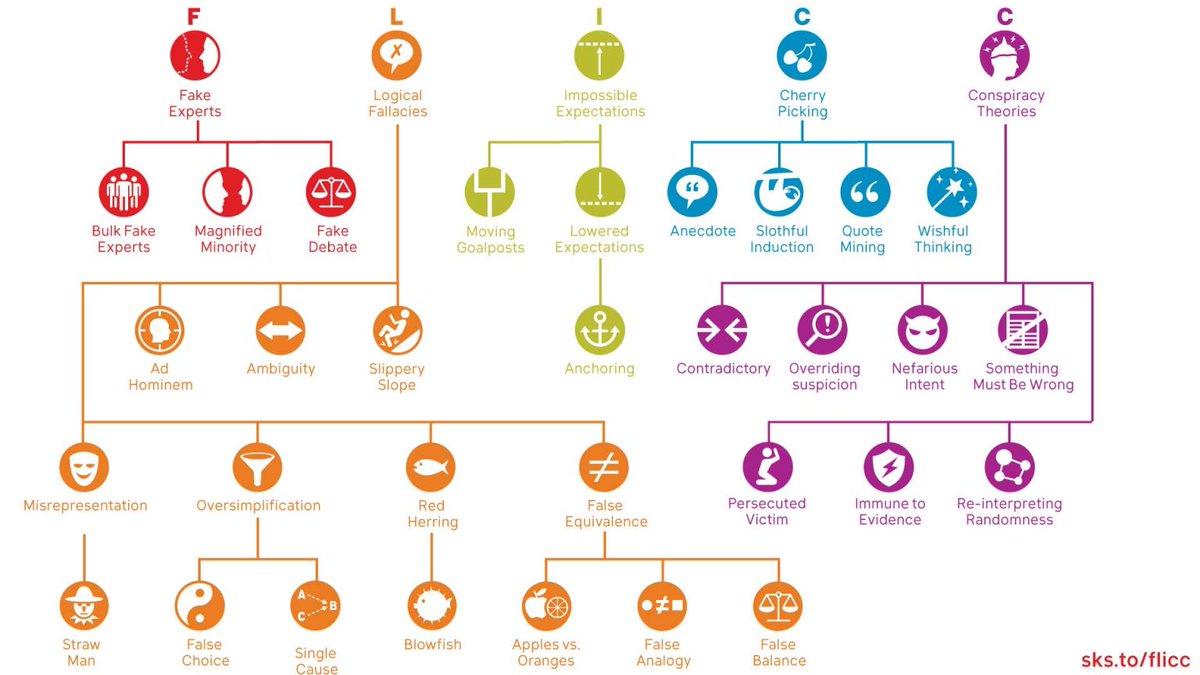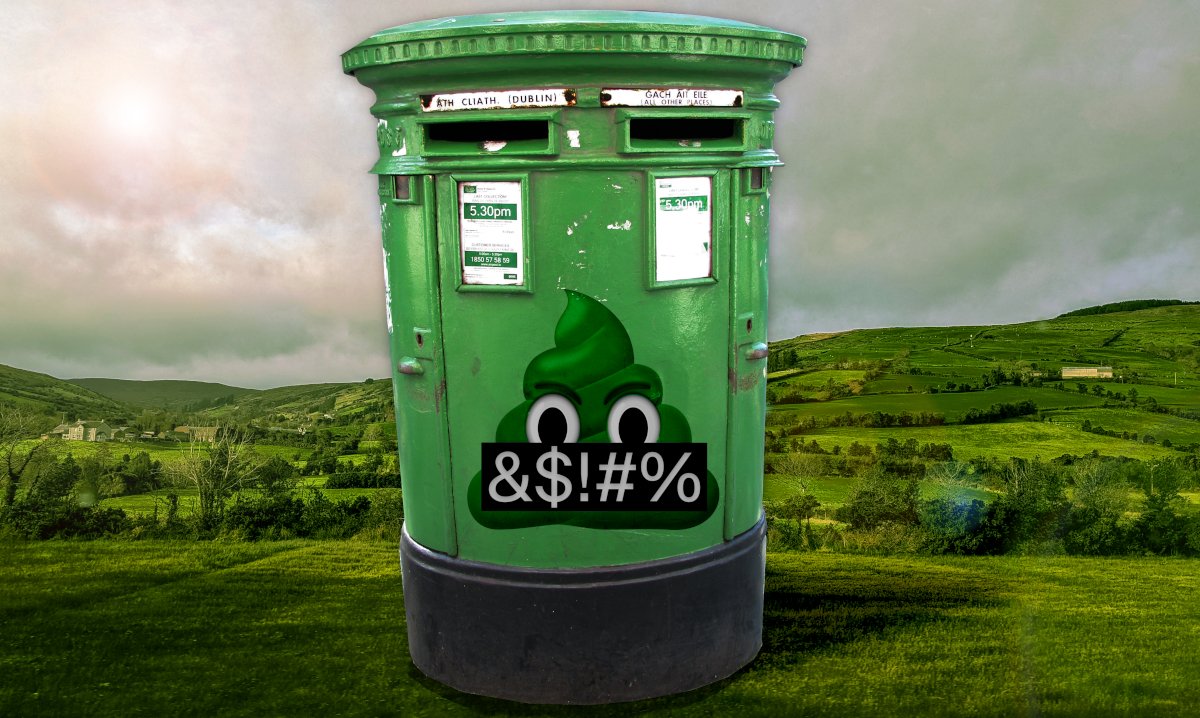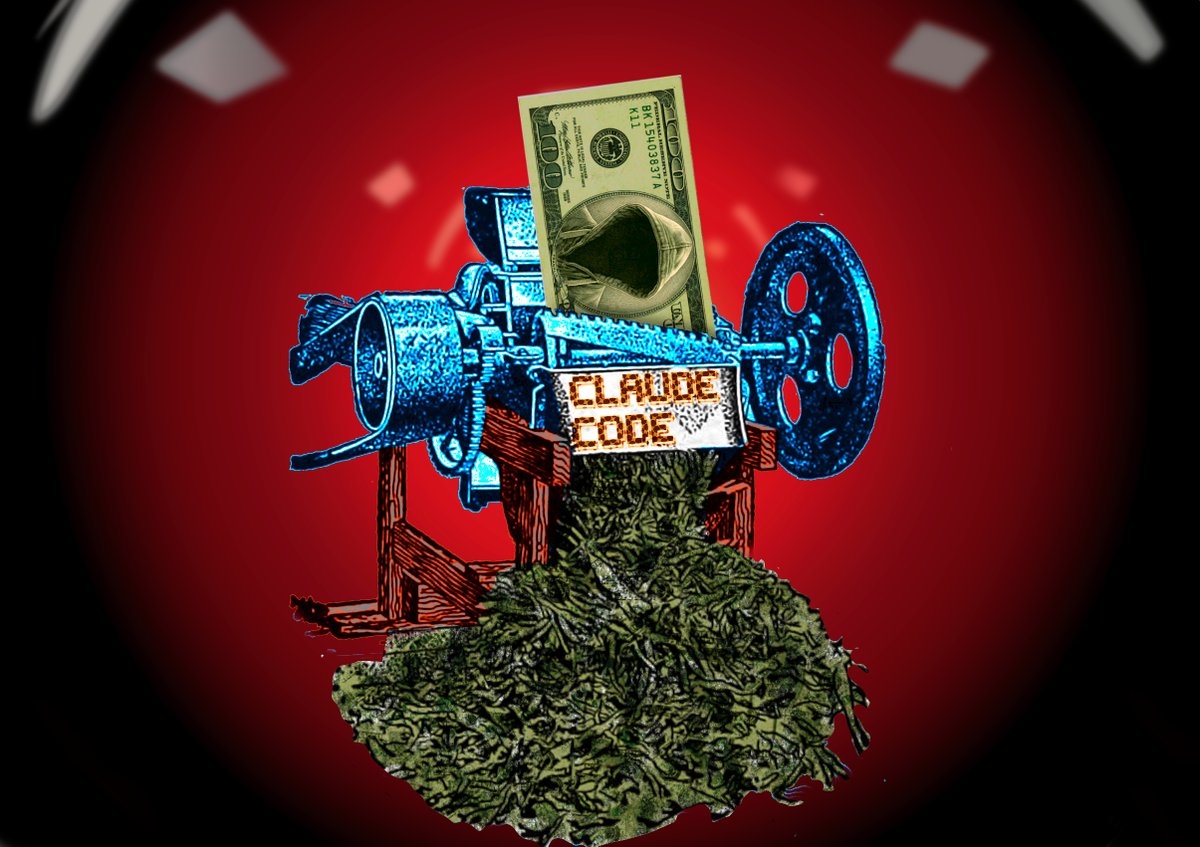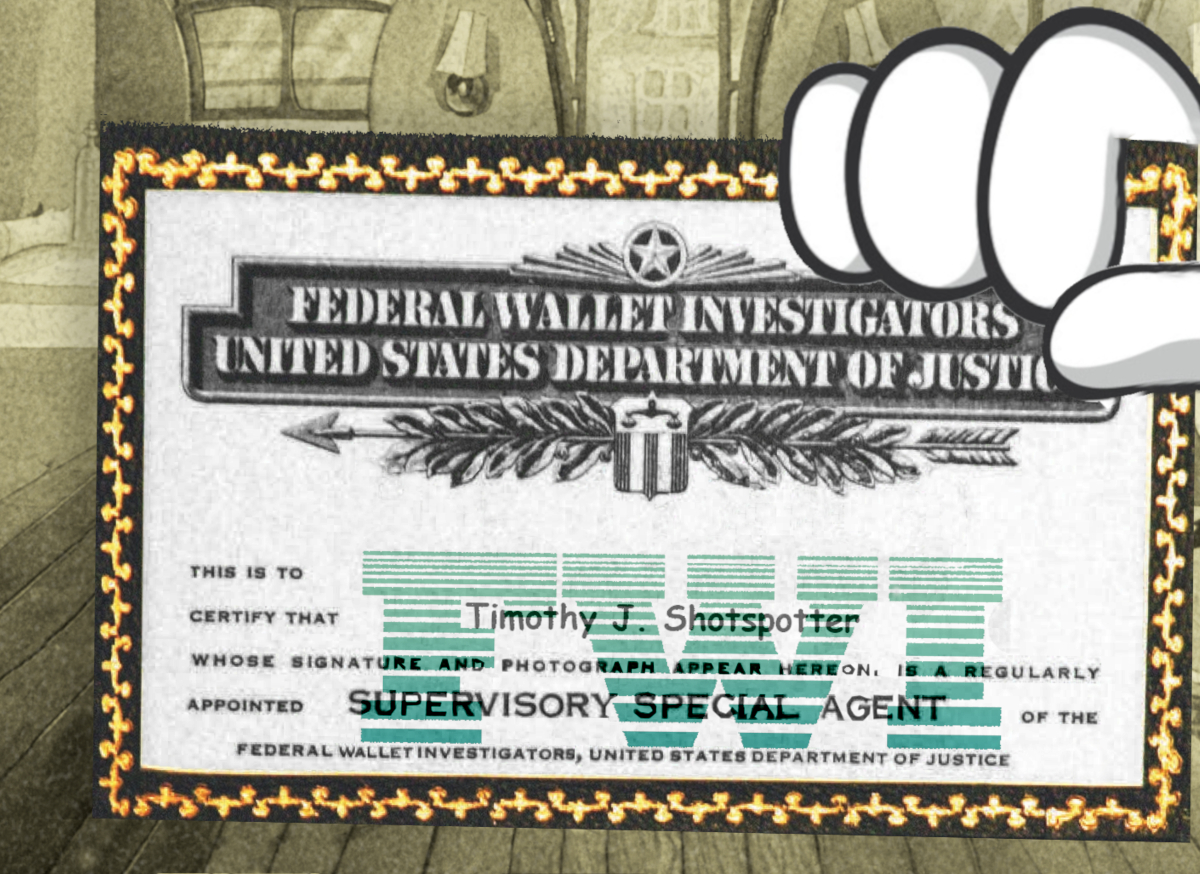The science denial industry has deep roots - tobacco-cancer denial, lead paint/gas denial and other ancestral forms of commercial denial gave birth to modern forms of denial: anti-vax, anti-mask, "stop the steal" and, of course, climate denial.
doctorow.medium.com/i-quit-9ae7b60…
1/
doctorow.medium.com/i-quit-9ae7b60…
1/

The denial industry has a well-developed and constantly evolving playbook. Wealthy interest seeking to sow doubt about reality - about WHETHER REALITY CAN EVEN BE KNOWN - can pay for skilled denialists to plan and execute denial on their behalf.
2/
2/
The reality-based community has long made efforts to catalogue denial techniques, and in 2007, @MarkHoofnagle proposed a five-point denial taxonomy: conspiracy, selectivity, fake experts, impossible expectations, and general fallacies of logic.
scienceblogs.com/denialism/2007…
3/
scienceblogs.com/denialism/2007…
3/
Inspired by a call for a fleshed-out denial taxonomy, GMU Climate Change Communications prof @johnfocook expanded on Hoofnagle's work, creating the #FLICC model: Fake experts, logical fallacies, impossible expectations, cherry-picking & conspiracies.
academic.oup.com/eurpub/article…
4/
academic.oup.com/eurpub/article…
4/

In a fascinating blog post, Cook enumerates all of the FLICC subtechniques, describing their relationship to the Big Five FLICC tactics, along with great, vector-based icons licensed CC BY-SA.
crankyuncle.com/a-history-of-f…
5/
crankyuncle.com/a-history-of-f…
5/

Here's the full taxonomy:
* Ad Hominem: Attacking a person/group instead of addressing their arguments.
“Climate science can’t be trusted because climate scientists are biased.”
6/
* Ad Hominem: Attacking a person/group instead of addressing their arguments.
“Climate science can’t be trusted because climate scientists are biased.”
6/

* Ambiguity: Using ambiguous language in order to lead to a misleading conclusion.
“Thermometer readings have uncertainty which means we don’t know whether global warming is happening.”
7/
“Thermometer readings have uncertainty which means we don’t know whether global warming is happening.”
7/

* Anchoring: Depending too heavily on an initial piece of information when making subsequent judgments.
“2.2 million people might have died from COVID-19 so keeping it down to only 130,000 deaths is a good job.”
8/
“2.2 million people might have died from COVID-19 so keeping it down to only 130,000 deaths is a good job.”
8/
* Anecdote: Using personal experience or isolated examples instead of sound arguments or compelling evidence.
“The weather is cold today—whatever happened to global warming?”
9/
“The weather is cold today—whatever happened to global warming?”
9/

* Blowfish: Focusing on an inconsequential aspect of scientific research, blowing it out of proportion in order to distract from or cast doubt on the main conclusions of the research.
“The hockey stick graph is invalid because it contains statistical errors.”
10/
“The hockey stick graph is invalid because it contains statistical errors.”
10/

* Bulk Fake Experts: Citing large numbers of seeming experts to argue that there is no scientific consensus on a topic.
“There is no expert consensus because 31,487 Americans with a science degree signed a petition saying humans aren’t disrupting climate.”
11/
“There is no expert consensus because 31,487 Americans with a science degree signed a petition saying humans aren’t disrupting climate.”
11/

* Cherry Picking: Carefully selecting data that appear to confirm one position while ignoring other data that contradicts that position.
“Global warming stopped in 1998.”
12/
“Global warming stopped in 1998.”
12/

* Contradictory: Simultaneously believing in ideas that are mutually contradictory.
“The temperature record is fabricated by scientists… the temperature record shows cooling.”
13/
“The temperature record is fabricated by scientists… the temperature record shows cooling.”
13/

* Conspiracy Theory: Proposing that a secret plan exists to implement a nefarious scheme such as hiding a truth.
“The climategate emails prove that climate scientists have engaged in a conspiracy to deceive the public.”
14/
“The climategate emails prove that climate scientists have engaged in a conspiracy to deceive the public.”
14/

* Fake Debate (false balance): Presenting science and pseudoscience in an adversarial format to give the false impression of an ongoing scientific debate.
“Climate deniers should get equal coverage with climate scientists, providing a more balanced presentation of views.”
15/
“Climate deniers should get equal coverage with climate scientists, providing a more balanced presentation of views.”
15/

* Fake Experts (appeal to false authority): Presenting an unqualified person or institution as a source of credible information.
“A retired physicist argues against the climate consensus, claiming the current weather change is just a natural occurrence.”
16/
“A retired physicist argues against the climate consensus, claiming the current weather change is just a natural occurrence.”
16/

* False Analogy: Assuming that because two things are alike in some ways, they are alike in some other respect.
“Climate skeptics are like Galileo who overturned the scientific consensus about geocentrism.”
17/
“Climate skeptics are like Galileo who overturned the scientific consensus about geocentrism.”
17/

* False Choice: Presenting two options as the only possibilities, when other possibilities exist.
“CO2 lags temperature in the ice core record, proving that temperature drives CO2, not the other way around.”
18/
“CO2 lags temperature in the ice core record, proving that temperature drives CO2, not the other way around.”
18/

* False Equivalence (apples vs. oranges): Incorrectly claiming that two things are equivalent, despite the fact that there are notable differences between them.
“Why all the fuss about COVID when thousands die from the flu every year.”
19/
“Why all the fuss about COVID when thousands die from the flu every year.”
19/
* Immune to evidence: Re-interpreting any evidence that counters a conspiracy theory as originating from the conspiracy.
“Those investigations finding climate scientists aren’t conspiring were part of the conspiracy.”
20/
“Those investigations finding climate scientists aren’t conspiring were part of the conspiracy.”
20/

* Impossible Expectations: Demanding unrealistic standards of certainty before acting on the science.
“Scientists can’t even predict the weather next week. How can they predict the climate in 100 years?”
21/
“Scientists can’t even predict the weather next week. How can they predict the climate in 100 years?”
21/

* Logical Fallacies: Arguments where the conclusion doesn’t logically follow from the premises. Also known as a non sequitur.
“Climate has changed naturally in the past so what’s happening now must be natural.”
22/
“Climate has changed naturally in the past so what’s happening now must be natural.”
22/

* Lowered Expectations: Lowering the standard by which you grade a performance or assess evidence.
“Two snapshots of Mars show shrinking ice, so Mars is global warming.”
23/
“Two snapshots of Mars show shrinking ice, so Mars is global warming.”
23/
* Magnified Minority: Magnifying the significance of a handful of dissenting scientists to cast doubt on an overwhelming scientific consensus.
“Sure, there’s 97% consensus but Professor Smith disagrees with the consensus position.”
24/
“Sure, there’s 97% consensus but Professor Smith disagrees with the consensus position.”
24/

* Misrepresentation: Misrepresenting a situation or an opponent’s position in such a way as to distort understanding.
“They changed the name from ‘global warming’ to ‘climate change’ because global warming stopped happening.”
25/
“They changed the name from ‘global warming’ to ‘climate change’ because global warming stopped happening.”
25/

* Moving Goalposts: Demanding higher levels of evidence after receiving requested evidence.
“Sea levels may be rising but they’re not accelerating.”
26/
“Sea levels may be rising but they’re not accelerating.”
26/

* Nefarious intent: Assuming that the motivations behind any presumed conspiracy are nefarious.
“Climate scientists promote the climate hoax because they’re in it for the money.”
27/
“Climate scientists promote the climate hoax because they’re in it for the money.”
27/

* Overriding suspicion : Having a nihilistic degree of skepticism towards the official account, preventing belief in anything that doesn’t fit into the conspiracy theory.
“Show me one line of evidence for climate change… oh, that evidence is faked!”
28/
“Show me one line of evidence for climate change… oh, that evidence is faked!”
28/

* Oversimplification: Simplifying a situation in such a way as to distort understanding, leading to erroneous conclusions.
“CO2 is plant food so burning fossil fuels will be good for plants.”
29/
“CO2 is plant food so burning fossil fuels will be good for plants.”
29/

* Persecuted victim: Perceiving and presenting themselves as the victim of organized persecution
“Climate scientists are trying to take away our freedom.”
30/
“Climate scientists are trying to take away our freedom.”
30/

* Quote Mining: Taking a person’s words out-of-context in order to misrepresent their position.
“Mike’s trick… to hide the decline.”
31/
“Mike’s trick… to hide the decline.”
31/

* Re-interpreting randomness: Believing that nothing occurs by accident, so that random events are re-interpreted as being caused by the conspiracy.
“NASA’s satellite exploded? They must be trying to hide inconvenient data!”
32/
“NASA’s satellite exploded? They must be trying to hide inconvenient data!”
32/

* Red Herring: Deliberately diverting attention to an irrelevant point to distract from a more important point.
“CO2 is a trace gas so it’s warming effect is minimal.”
33/
“CO2 is a trace gas so it’s warming effect is minimal.”
33/

* Single Cause: Assuming a single cause or reason when there might be multiple causes or reasons.
“Climate has changed naturally in the past so what’s happening now must be natural.”
34/
“Climate has changed naturally in the past so what’s happening now must be natural.”
34/

* Slippery Slope: Suggesting that taking a minor action will inevitably lead to major consequences.
“If we implement even a modest climate policy, it will start us down the slippery slope to socialism and taking away our freedom.”
37/
“If we implement even a modest climate policy, it will start us down the slippery slope to socialism and taking away our freedom.”
37/

* Slothful Induction: Ignoring relevant evidence when coming to a conclusion.
“There is no empirical evidence that humans are causing global warming.”
38/
“There is no empirical evidence that humans are causing global warming.”
38/

* Something must be wrong: Maintaining that the official account is based on deception, even when parts of a conspiracy theory become untenable.
“Ok, fine, 97% of climate scientists agree humans are causing global warming, but that’s because they’re toeing the party line.”
39/
“Ok, fine, 97% of climate scientists agree humans are causing global warming, but that’s because they’re toeing the party line.”
39/

* Straw Man: Misrepresenting or exaggerating an opponent’s position to make it easier to attack.
“In the 1970s, climate scientists were predicting an ice age.”
40/
“In the 1970s, climate scientists were predicting an ice age.”
40/

* Wishful Thinking: Choosing to believe something is true because we really want it to be true, instead of relying on scientific evidence.
“Forget climate model predictions of warming, I think we’re about to experience global cooling.”
41/
“Forget climate model predictions of warming, I think we’re about to experience global cooling.”
41/
All of these are explained in depth in "The Conspiracy Theory Handbook," by Cook and @STWorg, available free in English, Czech, French, German, Green, Hungarian, Italian, Portuguese, Russian, Serbian, Spanish and Turkish.
climatechangecommunication.org/conspiracy-the…
42/
climatechangecommunication.org/conspiracy-the…
42/
ETA - If you'd like an unrolled version of this thread to read or share, here's a link to it on pluralistic.net, my surveillance-free, ad-free, tracker-free blog:
pluralistic.net/2021/06/10/fli…
pluralistic.net/2021/06/10/fli…
• • •
Missing some Tweet in this thread? You can try to
force a refresh










